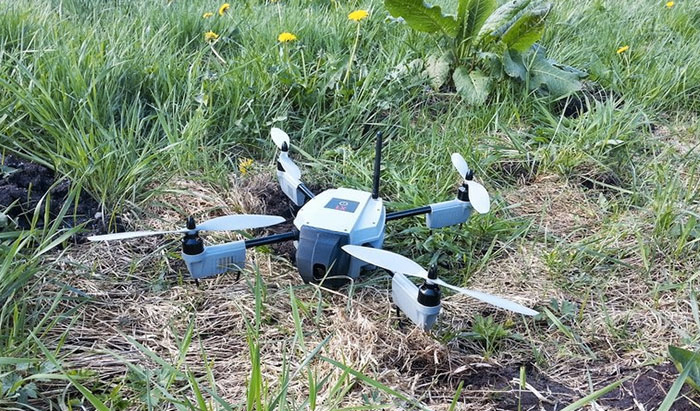
BASIS has launched an accreditation for pilots of Unmanned Aerial Systems (UAS) or drones in response to the increasing use of this technology in agriculture.
The new BASIS Agricultural Awareness for Unmanned Aerial Systems (UAS) Operators module, launched at LAMMA, is a stand-alone course which will provide drone pilots with appropriate agricultural knowledge and understanding, to ensure best practice and safe operation.
Dr Richard Green, Senior Lecturer and Academic Lead - National Centre for Precision Farming (NCPF) Unmanned Aerial Systems (UAS) Interest Group said: “UAS or drones are rapidly changing the science of farm and land management. While this technology offers exciting new opportunities for land and farm management, they need to be used effectively and in a safe manner.”
“Users need to understand how they can get the most out of these systems in order to get the best financial returns on investments in this technology. They also need to be aware of the rapidly developing legislation regarding their use and safe operation, as insurers are unlikely to cover the cost of damage or injuries caused by untrained operators.”
BASIS is working in conjunction with Harper Adams University run National Centre for Precision Farming and leading members of the UAS industry to develop a range of suitable training courses to address this new accreditation requirement.
The one day course will cover topics such as farming and farm practices, agricultural supply chain, crops and crop management and legislation (agricultural legislation, data protection and health and safety).
“UAS or drones, combined with developments in sensors, image processing, and management software are rapidly changing the science of farm and land management. While this technology offers exciting new opportunities for land and farm management, they need to be used effectively and in a safe manner,” said Dr Green.
“Users need to understand how they can get the most out of these systems in order to get the best financial returns on investments in this technology. They also need to be aware of the rapidly developing legislation regarding their use and safe operation, as insurers are unlikely to cover the cost of damage or injuries caused by untrained operators.”
BASIS is working in conjunction with Harper Adams University run National Centre for Precision Farming and leading members of the UAS industry to develop a range of suitable training courses to address this new accreditation requirement.
Stephen Jacob, business development manager for BASIS, said: “The number of drones being used in agriculture has increased rapidly in recent years and some companies and UAS pilots who offer data collection services will not have come from an agricultural background. As a member of the Unmanned Aerial Systems Special Interest Group, BASIS was asked to put together a form of accreditation for UAV pilots working within the agricultural industry.
“The new Agricultural Awareness training course has been developed for UAS pilots and professionals who work in related areas, such as machinery manufacturers, employees of sensors manufacturer and distributors. Successful completion of the course and exam will be a step towards accreditation,” he said.
